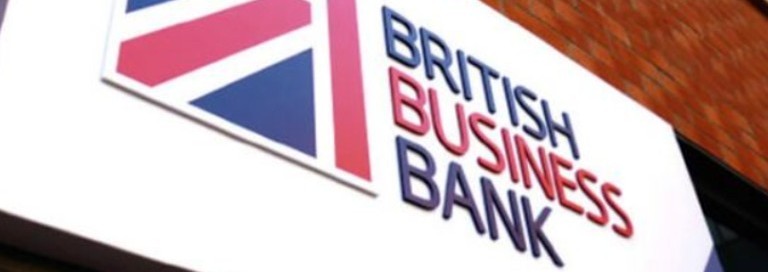Coronavirus Business Interruption Loan Scheme (CBILS)
Posted on 4th May 2020 at 12:54
Applications for the expanded scheme opened on 6 April 2020.
The scheme will initially run for six months. All SMEs in all industries (except for the exclusions below) can apply. While resources have been trebled to process the increased demand expected for these loans, phone lines are likely to be busy and bank branches may not be able to handle enquiries in person, so online applications are recommended.
Applications should be made directly to lenders accredited by the British Business Bank. The lender has the authority to decide whether to offer finance under this scheme unless it can do so on normal commercial terms. Other lenders can be approached if one lender has turned the lending down. A crucial relaxation has been applied now and insufficient security is no longer a condition to access the scheme.
SMEs will qualify if the business:
• is UK-based
• has an annual turnover under £45m
• has a borrowing proposal that the lender would consider viable prior to the Covid-19 pandemic
• self-certify that it has been adversely impacted by the coronavirus (COVID-19).
• not have been classed as a ‘business in difficulty’ on 31 December 2019, if applying to borrow £30,000 or more.
Applications can be made directly to the bank and there are no arrangement fees. The government will pay for any lender-levied fees and cover interest payments for the first 12 months, lowering the initial repayments for smaller businesses. In addition, some lenders are likely to offer capital deferment schemes of up to six months.
Term loans from £10,000 to £5m will be available for a maximum repayment period of six years. Overdraft and invoice financing to ease working capital requirements will be available for up to three years.
Under the expanded scheme, borrowings of up to £250,000 can now be accessed without any security. For borrowings above £250,000, personal guarantees and security may be required, at the lender’s discretion.
Principal private residences cannot be taken as security or used to support personal guarantees. As the government is backing these loans with an 80% guarantee to the lenders, the recoveries on defaulted loans will be limited to 20% of the outstanding balance on the facility, after the proceeds of any business assets offered as security have been applied.
Small businesses that may have previously been denied loans under this scheme because lenders decided that normal commercial loans were more suitable for them can now apply for CBILS finance.
Lenders will require the following information:
• the amount to be borrowed
• the purpose of the loan, so that the lender can assess which type of finance is right
• Repayment term so that the bank can verify affordability.
The following documentation is likely to be requested as supporting evidence (although this may vary):
• management accounts
• cashflow forecast
• business plan
• historic accounts
• details of assets.
For applications for smaller facilities, it is likely that the process may be automated and may not require the same level of documentation.
* Excluded businesses that cannot apply for CBILS are:
• public-sector bodies
• further-education establishments, if they are grant-funded
• state-funded primary and secondary schools.
Further information about the scheme rules and eligibility criteria can be found here.
Package of additional funding measures for companies unable to access CBILS
The Chancellor has announced a new £1.25bn coronavirus package to protect firms driving innovation in UK, which will be delivered under two new schemes:
• a package that includes a £500m investment fund for high-growth companies impacted by the crisis, made up of funding from government and the private sector (Future Fund Loan Scheme)
• SMEs focusing on research and development will also benefit from £750m of grants and loans.
The schemes will be active from May 2020 and ACCA will continue to monitor and issue further guidance as it becomes available. Some initial details of the Future Fund Loan Scheme are provided below.
Future Fund Loan Scheme
From May 2020 UK companies affected by the pandemic but unable to access the CBILS may apply for a new Future Fund government bridging loan subject to eligibility criteria. The scheme will be delivered in partnership with the British Business Bank and will launch in May 2020. More details can be found here.
As part of the scheme, the government will issue a convertible bridging loan amounting to 50% of total funds raised by the company – the other 50% will come from private investor funding. The application must be made for at least £125,000 and no more than £5m. The bridging loan will be converted to equity at 20% discount. More clarification is expected on how this will be applied.
The bridge funding shall be used solely for working capital purposes and shall not be used by the company to repay any borrowings, make any dividends or bonus payments to staff, management, shareholders or consultants, or, in respect of the government loan, to pay any advisory or placement fees or bonuses to external advisers.
The scheme will open from May 2020 and last until September 2020 (subject to subsequent extension).
Qualifying companies
• unlisted UK registered companies
• which raised at least £250,000 of private funding in the last five years
• which have a substantive economic presence in the UK
• for group companies only the parent company may apply.
Micro businesses: Bounce Back Loan scheme
This scheme is available for eligible micro businesses from 4 May 2020 through an online application. Businesses can apply for loans from £2,000 to £50,000, which are repayable within six years.
The government will pay the interest on the loans for the first 12 months. No repayments will be due for the first 12 months.
The government will work with lenders to agree a low rate of interest for the remaining period of the loan.
The scheme will provide lenders with a 100% government guarantee.
Applications can be for loans of up to 25% of turnover.
Businesses eligible for a loan are those that:
• are based in the UK
• have been negatively affected by coronavirus
• were not an 'undertaking in difficulty' on 31 December 2019.
• are not already claiming under the Coronavirus Business Interruption Loan Scheme (CBILS). However, if you have already received a loan of up to £50,000 under CBILS and would like to transfer it into the Bounce Back Loan scheme, you can agree the transfer with the existing lender until 4 November 2020.
Article from ACCA In Practice

Share this post:



